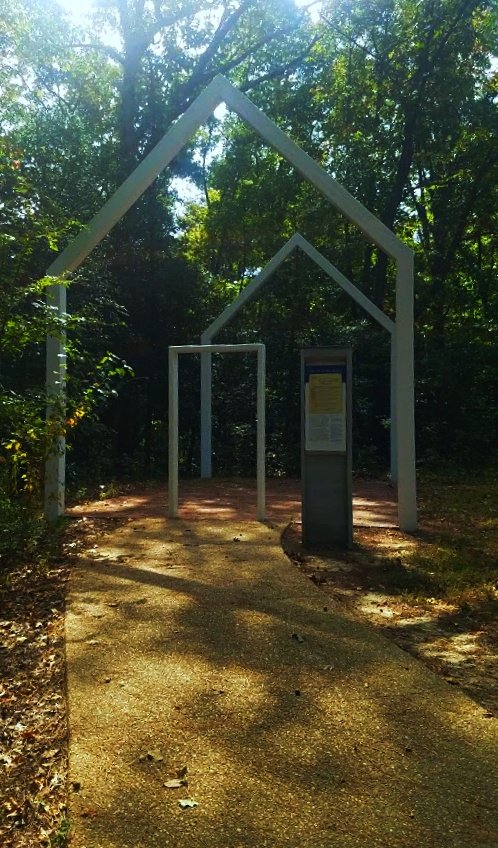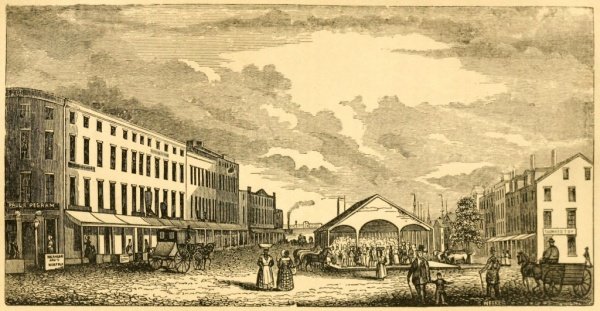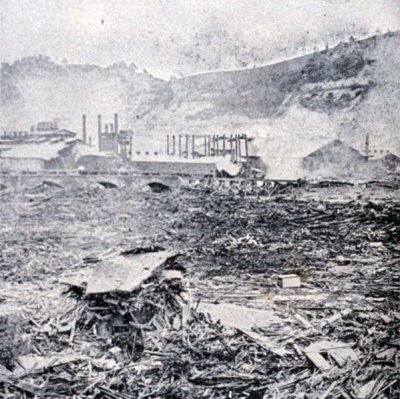Receive our blog posts in your email by filling out the form at the bottom of this page.
“I think books are like people, in the sense that they'll turn up in your life when you most need them.” — Emma Thompson
James Hunt, an interesting colonial American Presbyterian minister in his own right, had a ringside seat to the 1740’s revival in Virginia known as the Great Awakening. He was born in Hanover, Virginia on February 19, 1731 to James and Sarah Hunt. The elder James Hunt in the early 1740s was part of a group led by Samuel Morris who were disaffected with the stale liturgical and spiritually dry worship that they experienced in the established Anglican church of the Old Dominion colony of Virginia.
A letter from a gentleman who knew the younger James Hunt and spoke to him shortly before his death and which contained Hunt’s narrative account of the events was published with annotations by John Holt Rice in the August 1819 issue of The Virginia Evangelical and Literary Magazine under the title Origin of Presbyterianism in Virginia.
This narrative of Hunt, conveyed to us by John Holt Rice, may be compared with other primary accounts of the beginning of the Hanover revival such as the letter of Samuel Morris (found in a 1751 letter from Samuel Davies to Joseph Bellamy and published as The State of Religion Among the Protestant Dissenters in Virginia); and the account given by David Rice (which appears in Robert H. Bishop, An Outline of the History of the Church in the State of Kentucky, During a Period of Forty Years, Containing the Memoirs of Rev. David Rice (1824)), and yet the narrative of Hunt, who was present (and indeed was spiritually awakened there) stands out for its rich, fascinating detail and, especially, for Hunt’s “pertinent remarks on the various providences of God” in the events which shaped the course of the revival.
Detail of the 1753 Fry-Jefferson map of Virginia, focusing on Hanover County in the center.
The Samuel Morris group had managed to acquire certain religious books which stirred something deep within them, including Thomas Boston’s Human Nature in Its Four-Fold State, Martin Luther’s commentary on Galatians, the sermons of George Whitefield, and the works of John Bunyan. The group would gather at a Reading Room constructed for the purpose of reading these works aloud and discussing them, and as this activity grew in popularity, additional reading rooms were erected, something that did not go unnoticed by the civil authorities.
One of the Samuel Morris Reading Rooms, the reconstructed frame of which stands at the Historic Polegreen Church in Mechanicsville, Virginia (photo by R. Andrew Myers).
At this point, we will take up Hunt’s narrative directly:
And now their number became too large for any private house to contain them. Another step is taken — they build first one and then another of what they called ‘reading houses.’ Here the number of attendants and the force of divine influence much increase. The charge against the four principals, first engaged in the work, is changed — they are no longer considered as individual delinquents, whose obstinacy might be sufficiently punished by the civil magistrate; but as a malignant cabal, that required the interposition of the Executive. They are accordingly cited to appear before the Governor and Council. This was a shock for which they were not well prepared. The exaction of frequent fines, for nonattendance at church, they bore with patience and fortitude for the sake of a good conscience; but to be charged with a crime, of the nature, and extent, and penalty of which they had but indistinct conceptions, spread a gloom over their minds, and filled them with anxious forbodings, more easily conceived than described. They were placed in the most awkward situation. They were certainly and obviously a religious society. separate and distinct from the only one, the established church, which either the government, or the people, knew in the country; yet they were without a name. — They saw and felt the propriety of being able some how to designate themselves when they came before the Governor and Council. They once thought of calling themselves ’Lutherans,’ but they found some sentiments advanced in the only one of his books which they had, with which they could not agree, In the mean while the day drew on when they were to appear in Williamsburg; and with gloomy forbodings they get out without a name by which to call themselves, and without any written plan to shew the nature of the association which they had formed.
One of the four, who travelled down by himself, had to take shelter from a heavy storm of rain in the house of some poor man on the road. While there, waiting for the rain to cease, he to divert his melancholy, took down from a dusty shelf, an old dusty volume, and began to read. He had not read far, till he found himself not diverted, but deeply interested. He found his own sentiments embodied in a system. He read on with renewed pleasure and surprise, until the ceasing of the storm admonished him it was time to pursue his journey. He wished to know of the man whether he would sell that book. The man answered, no: but if he had any desire for it, he would give it to him, as he had no use for it, and it was not worth selling. Our poor distressed traveller received it as the gift of heaven — it was an old Scotch Presbyterian Confession of Faith. Meeting his companions in Williamsburgh, they took a private room, and there deliberately examined the book, and found it contained exactly the system of doctrines which they believed; and though not so well understanding the discipline, they did not so cordially approve that, yet, they unanimously agreed to adopt it as their confession of faith. Although they did not foresee the advantage it would be to them, yet it relieved them from the awkward situation in which they were, the heads and leaders of a religious society without a name. — When called before the Governor and Council, and interrogated about their profession, they presented their new found book, as their confession of faith. The Governor, Gooch, (who it was said had been educated a Presbyterian, but for the sake of an office or for some other reason, had become a member of the established church,) immediately observed, on seeing the confession, that these men were Presbyterians, and that they were tolerated by the laws of England. But the Council, not feeling the same educational prejudice in favor of Presbyterianism, or not construing so liberally the laws relating to them, were not so easily satisfied — a good deal of bitterness was manifested by them towards the poor unfortunate culprits. But in the midst of this warm discussion (Mr. Hunt observed he had often heard his father mention it with awe and reverence,) the heavens became suddenly shrouded in darkness — thunders with tremendous peals seemed to shake the foundation of the house where they were; and the council chamber where they sat, appeared for a considerable time to be one continued blaze of lightning. The Governor and Council, as well as themselves, were seized with solemn awe — Mr. Hunt’s father told him, he had never before, nor afterwards, witnessed so tremendous a storm. When it abated he and his companions were dismissed with a gentle caution to beware not to excite any disturbance in his majesty’s colony, nor by any irregularities break the good order of society in their parish.
Here Mr. Hunt stopped, to make a number of pertinent remarks on the various providences of God. Had not a storm driven one of those persecuted men into an unknown house for shelter — had the Governor not been educated a Presbyterian — or, finally, had not the clouds gathered blackness at that particular hour, it is probable the issue of their journey to Williamsburg would have been extremely different from what it was. He did not think there was any thing miraculous in any of these occurrences; but he thought (and so do I) that a man must be strangely blinded, who does not see, in such a train of unconnected contingent events, all concurring to the same end, the secret, though powerful hand of him who, ‘works all things according to the council of his own will.’
It was soon after these events that William Robinson arrived on a missionary journey to central Virginia. On July 6, 1743, Robinson preached the first Presbyterian sermon ever recorded in this region. The Samuel Morris group was so moved by his message that when it was time for him to depart they endeavored to give him some financial renumeration for his pastoral services. He declined the offer, but they managed to fill his saddle bags with money anyway which, when he realized what was done, finally accepted the gift — but not for himself. Instead, he in turn used the money to pay for the theological education of a young man he knew who had shown great promise. That young man turned out to be Samuel Davies, who would in the process of time, after completing his education, be sent to minister to the Samuel Morris group of Hanover. Davies’ missionary labors in Virginia, which are legendary, were paved by all that went before in the providence of God.
James Hunt, whose full account is very much worth reading, went on to study directly under Davies, both in Hanover and, later, at the College of New Jersey at Princeton. He was licensed to preach the gospel in 1760, and ordained to ministry the following year, whereupon he was admitted as a member of the Hanover Presbytery, under whose bounds he labored as an itinerant minister for a time. In 1763, he was called as the pastor of a congregation in Pennsylvania, but in 1770, he accepted a new call to jointly minister to the Bladensburg and Captain John’s congregations in Rockville County, Maryland, where he labored for the rest of his life. There, on his farm “Tusculum,” he founded Rockville Academy, which included among its pupils, the famous writer William Wirt. Hunt died on June 2, 1793, and his funeral sermon was preached by James Muir.




















